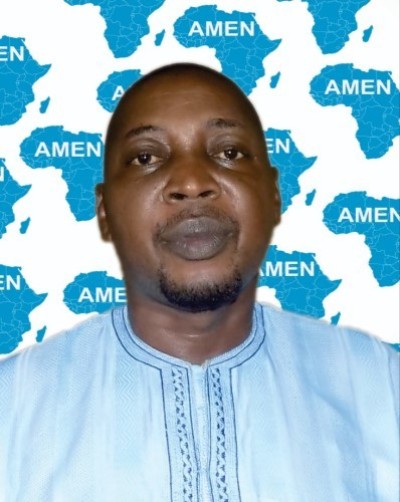What Nigerian Church should learn from early Ethiopian Church
In the course of researching on Christianity in Africa, I came in contact with some mind-blowing strategy that the people of Ethiopia used to sustain Christianity in their country.
Najid Mohammed, who is president of the Washington, DC-based Federation of Ethiopian Muslims in North America, wrote in an article titled, "An African Nation is the Muslims' First Refuge":
"History has shown that the first migration to Ethiopia and the second migration to Medina have indeed laid down the foundation on which Islam, as a universal religion, was built. Ever since that experience, the Muslim community, wherever they settled, shifted from the positive of minority to majority, from weakness to permanent strength, from tribalism to universal brotherhood that knows no defined political boundaries."
The above statements is true. Islam is the fastest growing religion in the world as of today. They settle as a minority group and gradually shift to become the majority. They have achieved this task in almost all the countries in Africa where they have invaded except Ethiopia.

There is something we really need to learn from Ethiopian Christians on how they were able to sustain Christianity despite all odds. Almost all the countries bordering Ethiopia are Islamic nations. How did they survive Islamic expansion?
Historical record shows that Islam got to Ethiopia before Medina and Mecca, and the CIA's The World Factbook shows that Ethiopia has 67.3% Christian (Ethiopian Orthodox, Protestant, Catholic) population and 31.3% Muslim population.
There is something out-of-box about the modus operandi of the Ethiopian Church that enabled them to firmly stand amid strong challenges. If these strategies are adopted, they can aid us Nigerian Christians in missionary training and deployment of work force to reach the unreached and sustain Christianity in Nigeria.
A look at the various strategies by the Ethiopian Church shows that the missionaries were able to bring kings and community leaders to the saving power of Christ. These leaders served as persons of peace who facilitated the penetration of the Gospel to many communities.
They brought some notable national leaders to Christ, and this facilitated the planting of churches in many provinces in Ethiopia. Among them are Zara Ya Kob, who was an emperor in Ethiopia from 1434-1468, and Lebna Dengel, who was an Ethiopian emperor from 1508-1540. This strategy did not only aid conversion but it also protected Christians during attacks and persecutions.
It also helped that the Syrian Church continuously sent missionaries to Ethiopia, even while Ethiopia was raising enough missionaries on its own. What resulted was Ethiopia had no lack of missionaries for evangelism.
Also, churches in Ethiopia worked very hard to produce Bibles in their own local languages and church services were conducted in indigenous dialects. This made communication of the Gospel easier and the story of the Bible was more realistic to the people as they used Bibles written in their mother tongues. It is not effective to plant churches in unreached areas and communicate to the people in the English language as seen in many of our churches in metropolitan areas of northern Nigeria.
There was a strong synergy in Ethiopia between the church and the state to protect Christianity and enhance evangelization of the unreached. Christian government officials in Ethiopia defended their Christian faith with everything within their ability and this yielded wonderful result. The challenge in Nigeria is that most government officials are not ready to stick out their neck in defense of the Christian faith. We need to intensify prayers for God to raise Christian men and women who will stand in the gap for the body of Christ in Nigeria.
The Ethiopian Christians did not hesitate to call on other Christians to come to their aid when they were persecuted and many Christians responded and joined forces with them to defend the Christian faith in Ethiopia. They made calls and there were responses. In Nigeria, the northern Christians who are under serious attack have cried out for help from southern Christians but there is no strong responses. This is a serious challenge as the northern Christians feel they are abandoned in their difficulties and persecution.
Even in the midst of persecution and attack of Christians in Ethiopia, the missionaries were busy advancing and pioneering the Gospel among the unreached people groups in hard-to-reach places. As more Christians were persecuted, more virgin mission fields were discovered.
Christians in Nigeria should resolve that for every Christian killed, five people who have not known Christ must be brought to the saving knowledge of Christ. And for every village razed down, five unreached villages must be reached with the Gospel and love of Christ. We need to radicalize our souls, spirit and body to further the Gospel in Nigeria.
The Ethiopian Christian strategy is a wonderful one and demands the concerted effort of all: pastors, lay men, government officials, governors, members of Nigeria's National Assembly and everyone who calls himself a Christian. This is a Macedonian call to duty to protect our common belief. Enough is enough to denominationalism, narcissism, and clericalism, let us speak one language to protect Christianity and further the Gospel of Christ in Nigeria.
Oscar Amaechina is the president of Afri-Mission and Evangelism Network, Abuja, Nigeria. His calling is to take the gospel to where no one has neither preached nor heard about Jesus. He is the author of the book Mystery Of The Cross Revealed.




















